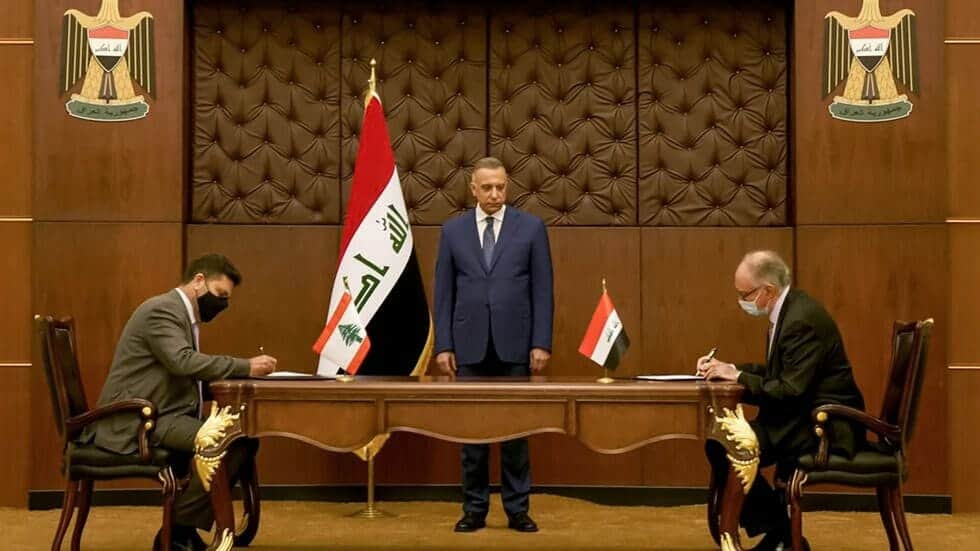-
Both countries are suffering from major energy crises, with electricity shortages impacting hospitals
-
Under the deal, Lebanon would receive one million tonnes of fuel oil in exchange for “goods and services”
Iraq will provide Lebanon with one million tonnes of fuel oil for its power plants in exchange for medical services, under a deal signed on Saturday in Baghdad.
Both countries are suffering from major energy crises, with electricity shortages impacting hospitals.
A statement from the Iraqi authorities said that under the deal, Lebanon would receive one million tonnes of fuel oil in exchange for “goods and services”.
Lebanon’s energy minister, Raymond Ghajar, said the deal would allow “the purchase of one million tonnes of Iraqi state fuel oil on behalf of Electricite du Liban (EDL)” over the course of a year.
The Iraqi oil cannot be used directly by Lebanon’s power stations, so Beirut will continue to buy compatible fuel from other providers which will receive the Iraqi oil in exchange, Ghajar said.
The mechanism is “a bit complicated”, he told a news conference at Beirut airport on his return from Baghdad.
The deal will cover a third of EDL’s fuel needs, he said, expressing the hope that EDL could provide “up to nine or 10 hours of electricity (daily) over four months”.
In exchange, Lebanon will provide “services and assistance to Iraq in the hospitals sector”, he said.
Amid a dire financial and economic crisis, the Lebanese state is struggling to buy fuel for its power plants, increasing electricity cuts to up to 22 hours a day in some areas.
Health services already struggling with shortages of medicine and an exodus of staff abroad are now also having to contend with almost round-the-clock power cuts.
Iraq is the second largest producer in the OPEC oil cartel, but decades of conflict, poor maintenance and rampant corruption have battered its energy sector.
Much of Iraq’s health infrastructure is dilapidated, and endemic corruption has hamstrung investment in public services.








